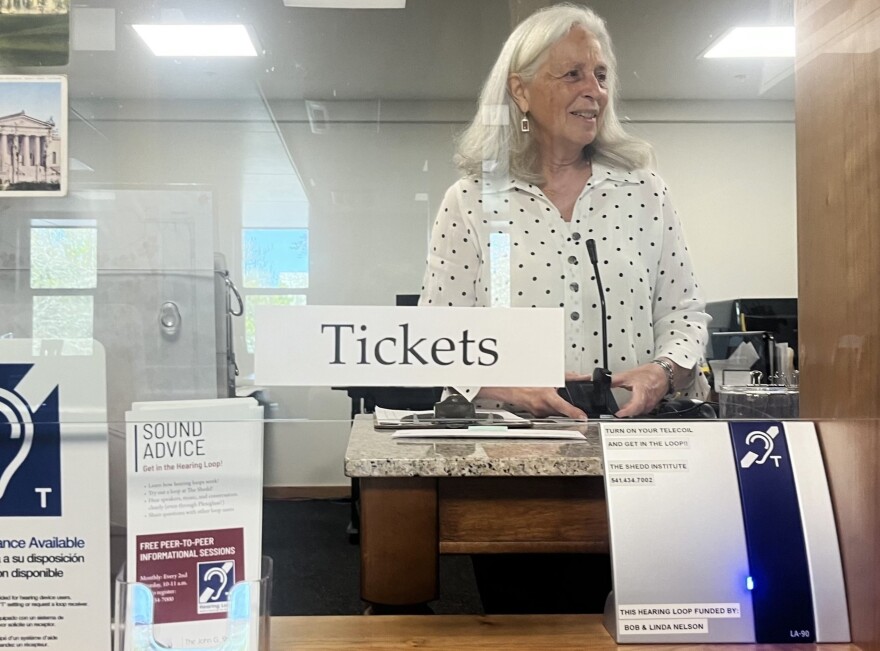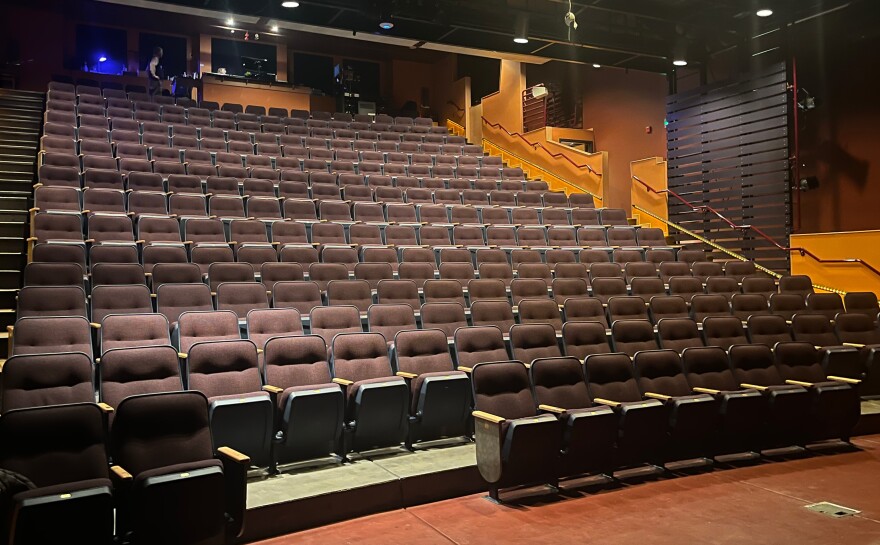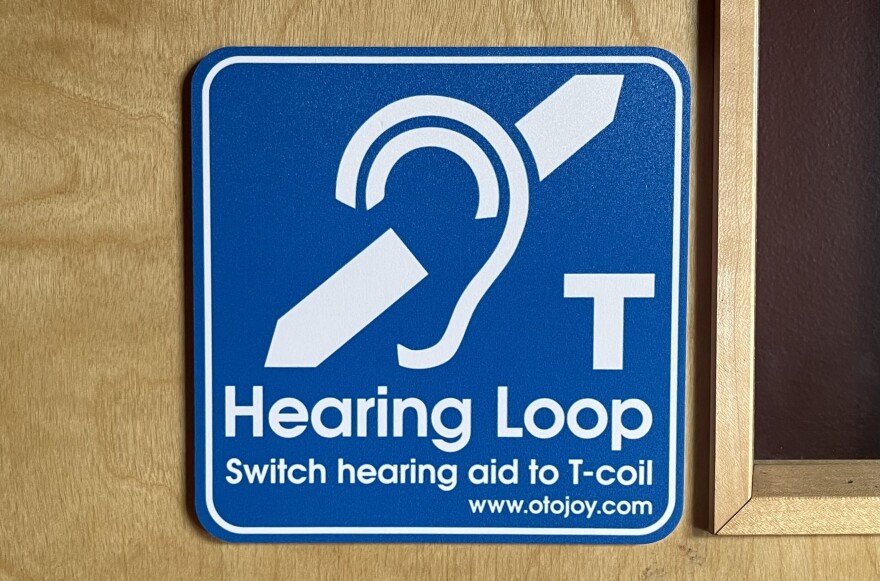Travel Lane County has won a national award for its work to accommodate people with hearing loss.
In the past year, the nonprofit has helped install 40 new “hearing loops” across hotels, performance halls, museums, and retail businesses in Lane County.
Using electromagnetic fields, these devices broadcast audio to hearing aids or cochlear implants. They can be small enough to fit on a front desk, or wrap around an entire concert venue.
Advocates say the loops can help someone understand speech in a noisy room, through a glass partition, or from a stage hundreds of feet away.
“Hearing is not always a very visible disability,” said Andy Vobora, Vice President of Stakeholder Relations at Travel Lane County. “But very simple, small investments can make a big impact.”
Vobora said he wants to make the county well-known as an accessible destination. Travel Lane County has now received the Hearing Loss Association of America’s 2024 Get in the Hearing Loop Award.

Why Hearing Loops?
15% of the U.S. adults report trouble with their hearing, according to the National Institute of Health.
However, Ginevra Ralph, a board co-chair of the advocacy group Loop Oregon, said the impairment is still heavily stigmatized and often misunderstood.
“Traveling with hearing loss is scary,” said Ralph. “You're sitting in a gate area at the airport. You don't hear the announcement clearly and all of a sudden everybody gets up and moves.”
Some businesses are already legally required to have an accessibility option, such as rentable headphones. But Ralph said this technology can be a hassle to use and return.
She believes hearing loops can offer more clarity. She said with multiple in a single space, a patron could seamlessly transition between listening to a ticket booth attendant, a bartender and a performance.
“Hearing loss is incredibly isolating, and people want to be part of the community,” said Ralph. “They don't want to just nod their head and smile and pretend that they heard.”
Ralph is also the co-founder of the Shedd Institute, one of multiple local theaters that have installed hearing loops.
Vobora from Travel Lane County said large-scale projects like these can transform a visitor’s experience with the arts.
“As a person who uses hearing aids, I can tell you,” said Vobora, “it's night and day when you can go to a performance and hear the entire dialogue, or hear music in such a way that represents its true nature.”

The Investment
Advocates of hearing loops say despite their advantages, they’re more expensive than current headphone technology, and the price to install them can also vary greatly.
Ralph said it’s harder to add loops into an existing building, and the presence of other metals can create unique technical issues.
When Springfield’s Wildish Community Theater installed a new loop earlier this year, it cost around half of the theater’s annual operating budget, according to Board President Kelly Mason.
Mason said it would have normally been impossible for a small nonprofit to cover those expenses, but the theater secured enough state and donor funding, with help from Travel Lane County and the Springfield Renaissance Development Corporation.
“The community's really excited about it,” said Mason. “It's a big win for downtown Springfield.”
Vobora said over the past year, Travel Lane County was able to get installation costs for some businesses down to less than $250. He said the nonprofit provided this through its own budget and by directing state grants from Travel Oregon.
Beyond Lane County
Ralph said Lane County is now far ahead of the rest of the state in its access to hearing loops.
In Eugene alone, a hearing advocacy group has identified over 60 locations that have been looped, from churches to libraries and the airport. In comparison, that same list shows that Portland only has four.
Ralph said moving forward, Loop Oregon is focused on filling the gaps in people’s day-to-day lives across the state—from grocery stores to pharmacies and lawyer’s offices.
“Loop your life,” said Ralph. “Where do you want to hear better? And how can you empower yourself to hear better on a daily schedule?”
To receive audio from a hearing loop, a device must have a telecoil wire. Ralph said all hearing aids should be compatible, but sometimes a user must specifically request that a wire is included.



